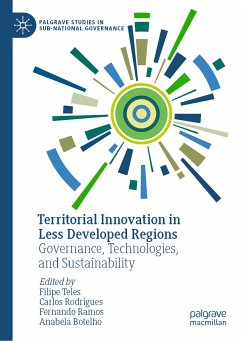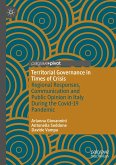Filipe Teles is Pro-Rector for Regional Development and Urban Policies at the University of Aveiro.
Fernando Ramos is Professor of Communication Sciences and Technologies at the University of Aveiro.
Carlos Rodrigues is Associate Professor and Head of the Department of Social, Political and Territorial Sciences at the University of Aveiro.
Anabela Botelho is Professor of Economics at the University of Aveiro.
Dieser Download kann aus rechtlichen Gründen nur mit Rechnungsadresse in A, B, BG, CY, CZ, D, DK, EW, E, FIN, F, GR, HR, H, IRL, I, LT, L, LR, M, NL, PL, P, R, S, SLO, SK ausgeliefert werden.









